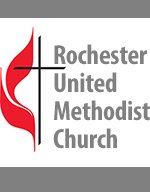Mark 6:14-29 (NRSV)
King Herod heard of it, for Jesus’ name had become known. Some were saying, “John the baptizer has been raised from the dead; and for this reason these powers are at work in him.” But others said, “It is Elijah.” And others said, “It is a prophet, like one of the prophets of old.” But when Herod heard of it, he said, “John, whom I beheaded, has been raised.”
For Herod himself had sent men who arrested John, bound him, and put him in prison on account of Herodias, his brother Philip’s wife, because Herod[c] had married her. For John had been telling Herod, “It is not lawful for you to have your brother’s wife.” And Herodias had a grudge against him, and wanted to kill him. But she could not, for Herod feared John, knowing that he was a righteous and holy man, and he protected him. When he heard him, he was greatly perplexed; and yet he liked to listen to him.
But an opportunity came when Herod on his birthday gave a banquet for his courtiers and officers and for the leaders of Galilee. When his daughter Herodias came in and danced, she pleased Herod and his guests; and the king said to the girl, “Ask me for whatever you wish, and I will give it.” And he solemnly swore to her, “Whatever you ask me, I will give you, even half of my kingdom.” She went out and said to her mother, “What should I ask for?” She replied, “The head of John the baptizer.” Immediately she rushed back to the king and requested, “I want you to give me at once the head of John the Baptist on a platter.”
The king was deeply grieved; yet out of regard for his oaths and for the guests, he did not want to refuse her. Immediately the king sent a soldier of the guard with orders to bring John’s head. He went and beheaded him in the prison, brought his head on a platter, and gave it to the girl. Then the girl gave it to her mother. When his disciples heard about it, they came and took his body, and laid it in a tomb.
Some Thoughts on Today’s Reading: July 15, 2018
Today’s Scripture Reading from Mark 6:14-29 has drama, family issues, power dynamics and opportunities to do the right and just thing. In today’s times, we might relate to all of this as something we could see on “reality television” where unhealthy relationships can become the backdrop for outrageous and harmful behavior.
The head of the family, King Herod, lashes out against the prophet John the Baptist and puts him prison because the prophet has criticized him and his wife, Herodias. She doesn’t like John the Baptist because of this. So, there is a growing stew here of bad feelings that are about to boil over. Herod, however, knows that John is a holy man and he likes to listen to him. In the end, he chooses a desire to be viewed as powerful and save face with the guests at his birthday party. He has John killed in a most violent display of power.
Mark spends a lot of time telling the story. It is not consistent with Mark’s brevity and “get to the point” way of conveying message. So, it must be important. While the account can be read as a tragic story of cruelty and disregard of God’s word–and it is–there are also moments in which all the family participants had an opportunity to experience grace and say yes to it.
Mom goads her daughter into asking for John’s head. It was a moment of retribution by Herodias, and she pulls her daughter into her grudge. Dad, who has something inside that recognizes the holiness of John, is more concerned with what people think about him rather than what God would have him do. This is a family that is fractured by strong emotions and power dynamics.
What can we learn from these verses? The text reminds us that in the chaos and disfunction in life, there is opportunity to see where God is inviting us to act differently than from our desire for being right or to exact vengeance. John the Baptist was the prophet who announced the one who would show us how to act in those times when God’s seemingly hidden grace presents itself. It’s up to us to act.
Grace and Peace,
Pastor Pam

Rev. Pam Brokaw pastors both the Rochester and Oakville United Methodist Churches.
She is a graduate of the Seattle University School of Theology and Ministry, where she earned her Masters in Divinity.
